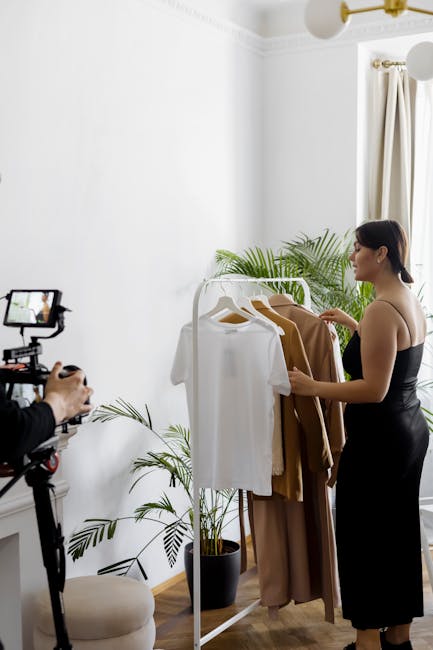YouTube Retirement: The Ultimate Guide for Creators Calling it Quits
YouTube Retirement: The Ultimate Guide for Creators Calling it Quits
For many YouTubers, the platform isn’t just a hobby; it’s a career, a passion, and often, a significant source of income. But just like any other profession, there comes a time when creators may consider retiring from the platform. Whether it’s due to burnout, pursuing other opportunities, or simply wanting a change of pace, retiring from YouTube requires careful planning and consideration. This comprehensive guide explores various aspects of YouTube retirement, offering advice and insights to help creators navigate this transition smoothly.
Reasons for YouTube Retirement
The decision to retire from YouTube is deeply personal and often driven by a combination of factors. Understanding these motivations is crucial for planning a successful exit strategy.
- Burnout: The constant pressure to create engaging content, maintain a consistent upload schedule, and interact with a demanding audience can lead to severe burnout. This is especially true for creators who treat YouTube as their sole source of income.
- New Opportunities: Many YouTubers transition to other ventures, leveraging their established audience and skills. This could involve starting a new business, pursuing a different career path, or focusing on other creative endeavors.
- Health Concerns: Health issues, both physical and mental, can necessitate a step back from the demands of YouTube content creation.
- Personal Reasons: Family obligations, travel aspirations, or simply a desire for a less demanding lifestyle can prompt creators to retire.
- Algorithm Changes: The ever-shifting YouTube algorithm can make it challenging for creators to maintain consistent views and engagement, leading to frustration and a desire to move on.
- Lack of Monetization: For smaller creators, monetizing YouTube can be difficult, and the financial strain might lead to retirement.
Planning Your YouTube Retirement
Retiring from YouTube isn’t simply about stopping uploads; it’s a strategic process requiring thoughtful planning. Here’s a step-by-step approach:
1. Assess Your Financial Situation:
Before retiring, honestly evaluate your financial health. Do you have enough savings to sustain yourself without YouTube income? Consider any potential passive income streams you’ve established, like merchandise sales or affiliate marketing. Consult a financial advisor to create a realistic budget and retirement plan.
2. Inform Your Audience:
Transparency is key. Let your subscribers know your plans in advance. This allows you to gracefully say goodbye and maintain a positive relationship with your community. Consider creating a farewell video expressing your gratitude and explaining your reasons for retirement.
3. Manage Your Channel:
Decide what will happen to your YouTube channel after retirement. Will you keep it up, archiving your content? Will you delete it? If you plan to keep it, consider updating your channel description to reflect your status. You might also create a playlist of your favorite videos or highlight reels.
4. Preserve Your Content:
Back up all your videos and related files. YouTube offers a download option, but it’s crucial to maintain multiple backups in case of unexpected technical issues. Consider cloud storage or external hard drives for additional security.
5. Explore Alternative Revenue Streams:
If you’re retiring from YouTube due to financial concerns, explore alternative ways to generate income. This might involve leveraging your skills and experience to find a new job, freelancing, or launching a new business.

6. Maintain Your Community:
Even after retirement, you can still stay connected with your audience. Consider shifting to other platforms like Instagram, Twitter, or a personal blog. Maintaining contact helps you retain your fanbase and keeps the door open for future projects if you decide to return to content creation.

Dealing with Emotional Aspects of Retirement
Retiring from YouTube can be an emotionally charged experience. The loss of a significant part of your identity and routine can be challenging. It’s important to acknowledge and address these feelings.
- Allow Yourself to Grieve: Accept that you’ll experience a sense of loss and allow yourself to process those emotions.
- Celebrate Your Achievements: Reflect on your successes and the impact you’ve made on your audience. This can help you feel a sense of accomplishment and closure.
- Focus on Self-Care: Prioritize your physical and mental well-being. Engage in activities that bring you joy and relaxation.
- Seek Support: Talk to friends, family, or a therapist if you’re struggling to cope with the transition.
Examples of Successful YouTube Retirements
Numerous successful YouTubers have retired from the platform, demonstrating that it’s possible to transition gracefully and maintain a positive relationship with one’s audience. Researching their strategies and experiences can provide valuable insights.
The Future After YouTube Retirement
Retirement from YouTube doesn’t have to mean the end of your creative journey. Many creators use their experience and established audience to pursue new ventures. Some focus on consulting, teaching, or mentoring other YouTubers. Others launch successful businesses or explore new creative outlets. The opportunities are vast and varied.
Frequently Asked Questions (FAQs)
Q: Can I delete my YouTube channel after retirement?
A: Yes, you can delete your channel, but remember to back up all your content first. This action is permanent, so proceed cautiously.
Q: What if I change my mind about retiring?
A: While it’s possible to reactivate a deleted channel under certain circumstances, it’s not always guaranteed. It’s best to have a clear plan before making a final decision.
Q: How do I deal with the potential loss of income?
A: Planning is essential. Consider diversifying your income sources, building an emergency fund, and consulting a financial advisor to create a sustainable retirement plan.
Q: How do I keep in touch with my audience after retirement?
A: Explore alternative social media platforms, email newsletters, or a personal website to maintain a connection with your audience.

Retirement from YouTube is a significant decision, but with careful planning and a positive outlook, creators can make a smooth and successful transition. Remember that it’s a personal journey, and there’s no one-size-fits-all approach. This guide provides a framework for navigating this phase of your YouTube career, enabling you to move forward with confidence and excitement for the next chapter.






